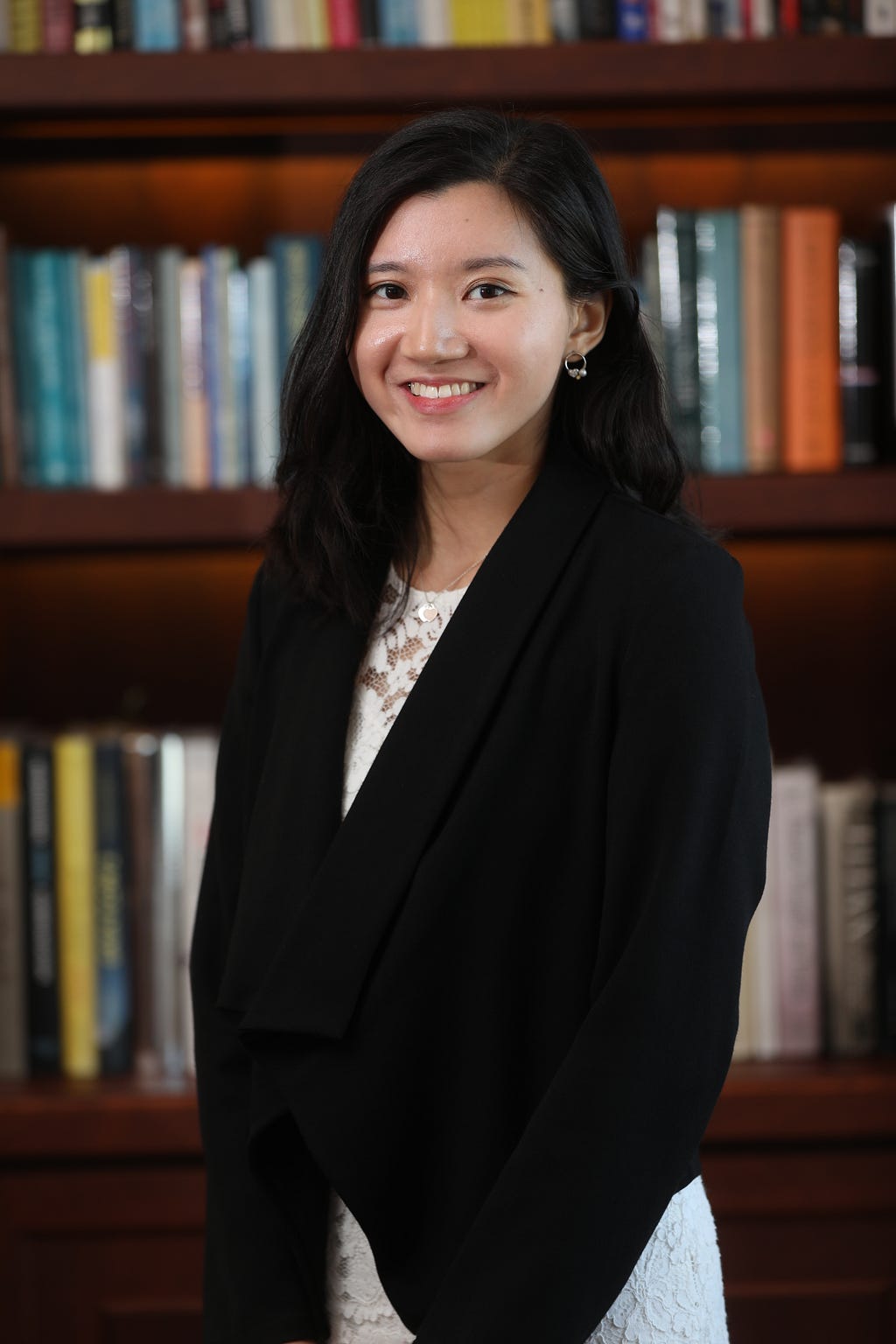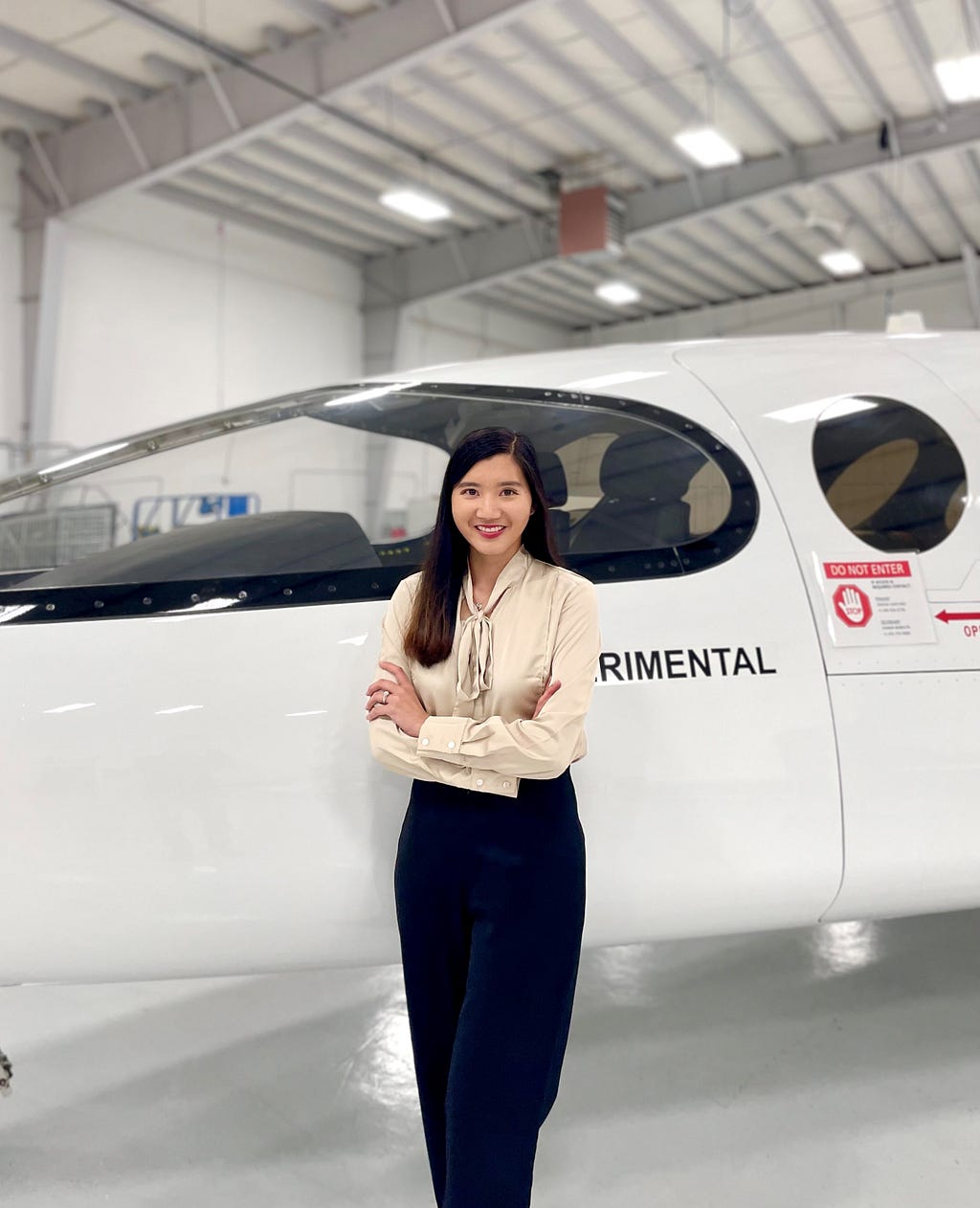Social Impact Investors: How Xaviera Ho of Clermont Group Is Helping To Empower People To Gain Access To Financial Services

I think living a purpose-filled life is vital to long-term happiness. When your actions can improve the lives of others, it creates a sense of fulfillment and joy that exceeds material possessions alone.
As a part of our series about “Social Impact Investors”, I had the pleasure of interviewing Xaviera Ho.
Xaviera is a Senior Investment Associate at Clermont Group, a private investment firm that believes in the Goodness of Business and invests in businesses that can advance the well-being of the communities they serve.
Xaviera has investor, operator and board experience, having been seconded to portfolio companies to lead business development, as well as advising boards on strategic matters. Her experience spans across early-stage to growth-stage companies in fintech, climate tech and healthcare. She has worked in various countries including Singapore, Vietnam and the U.S.
Xaviera started her career at J.P. Morgan, where she managed cross-asset portfolios as an Investment Analyst. She graduated from the National University of Singapore (NUS) with a Bachelor’s Degree in Business Administration (BBA), majoring in Finance.
Beyond her professional pursuits, Xaviera is deeply engaged in the venture capital community. She is a Venture Partner with GoingVC Partners and an angel investor with Hustle Fund Angel Squad, Epic Angels, and NUS Alumni Ventures.
Thank you so much for doing this with us! Before we dive in, our readers would love to learn a bit more about you. Can you tell us a story about what brought you to this specific career path?
I started my career at J.P. Morgan where I managed cross-asset portfolios for clients. I was exposed to a variety of asset classes, including alternative investments such as hedge funds, private equity, and venture capital. I learned about the world of impact investing after attending a J.P. Morgan event, inspired by investors who believed that they could make a difference by allocating capital to mission-driven businesses and still make attractive returns. Shortly after, a headhunter reached out to me about a job opportunity with the Clermont Group, a private investment firm that believes in the Goodness of Business. I was sold.
Although I was part of the investment team, I was fortunate to gain operating experience through secondment opportunities in portfolio companies. I lived in Vietnam for a year working at a fintech company with a mission to democratize access to credit and to serve the underbanked, blue-collared workers in Vietnam. Later, I moved to Seattle to work at a climate tech startup that aims to decarbonize air travel. Looking back on my career, I find myself “working backwards” — from investing in public markets to private markets in late-stage companies (buyout, growth) to early-stage startups (seed, Series A).
Can you share a story with us about the most humorous mistake you made when you were first starting? What lesson or take-away did you learn from that?
This may not be humorous per se, but I will always remember the importance of the “Ground Game”. Three months after I joined my current firm, I was tasked to lead business development for a fintech company we’d acquired. The company provides financial services for blue-collared factory workers who are underserved by traditional financial institutions. The first thing I did, true to my finance background, was to build a financial model on Excel and make beautiful PowerPoint slides detailing the business strategy. When I presented my work to the management team, they asked, “So what do our customers need?” I was stumped — I had spent a week putting together the materials but had not spoken to a single customer. The next day, I went down to the factories and with the help of a sales agent, sat through an entire sales cycle with a customer. I learned more in that hour than in the week I spent in the office.
Are you able to identify a “tipping point” in your career when you started to see success? Did you start doing anything different? Are there takeaways or lessons that others can learn from that?
My tipping points are what I’d call “crucible moments”, to borrow a term from Sequoia. These are decisions that have altered my life trajectory significantly. The first is leaving J.P. Morgan to pursue my passion. Growing up in a traditional Asian society, working in finance at a respected firm was deemed as prestigious. Initially, I thought I would have stayed in banking until I became a Managing Director, but I decided to leave my comfort zone and pursue my passion of impact investing. The second tipping point is when I moved from Singapore to Seattle (amid the global pandemic) to join Eviation, a portfolio company that makes electric airplanes. I believe in Eviation’s mission to decarbonize air travel by launching a new era of sustainable, scalable and affordable transportation. It was a steep learning curve for me as I had to learn the ropes of a new industry that was highly technical and complex on top of adjusting to living in a new country.
After many ups and downs, Eviation made history when it flew the world’s first all-electric commuter aircraft last year. It was a surreal moment, and I am so glad I got to be a part of this journey. After First Flight, we built the orderbook to over US$ 5 billion, and Eviation was recognized as one of Time’s 100 Most Influential Companies in 2023. I’ve learned that I grow the most outside of my comfort zone. If I feel comfortable, often times it is a sign for me to get moving.
None of us are able to achieve success without some help along the way. Is there a particular person or mentor to whom you are grateful who helped get you to where you are? Can you share a story about that?
I would have never gotten to where I am without my family, friends, and co-workers. I am grateful for all the help I’ve received, even if it’s just a listening ear. I would say a mentor to whom I’m grateful for is my Analyst Manager at J.P. Morgan. She not only excelled in her role and had great investment acumen, but also truly cared for analysts and their well-being. She would often go out of her way to ensure that I was learning and growing, and whenever I had a trade idea or a plan to organize an event for clients, she would always encourage me to go for it. I try to carry the same spirit as a mentor to undergraduates at my alma mater or to startup founders whom I’m advising.
You have been blessed with great success in a career path that many have attempted, but eventually gave up on. Do you have any words of advice for others who may want to embark on this career path but are afraid of the prospect of failure?
I understand that everyone is at a different stage in life and have different risk tolerances. Before you make an investment in anything, you must first understand your risk tolerance. The same applies for your career. If you are earlier in your career and don’t need a stable or high income, then you can afford to take more risks as your risk tolerance is higher. Even if you fail, you would have acquired a new skill set, perhaps gained the opportunity to live abroad, and added a new life experience.
Ok, thank you for that. Let’s now jump to the main part of our discussion. You are a VC who is focused on investments that are making a positive social impact. Can you share with us a bit about the projects and companies you have focused on, and look to focus on in the future?
The industry verticals I focus on are healthcare, fintech, and climate tech. I am particularly passionate about fintech as I believe that access to financial services is one of the great levelers. When I was in Vietnam, I was working on a portfolio company, Movi, that aims to achieve financial inclusion for blue-collared workers in Vietnam. With an average salary of US$ 500 per month, many of them are underserved by traditional financial services. Movi provides them with access to credit so that they can purchase essential household items such as smartphones, refrigerators and washing machines.
Personally, I have also invested in my time and capital in fintech companies with a similar mission of democratizing access to financial services. One example is The Beans, a startup that automates financial plans for the Caring Class in the U.S., people such as educators, healthcare workers and non-profit professionals who choose careers of mission over money. Another is SALT, a personal finance and wealthtech app that aims to bridge the gender gap in India by empowering women to achieve financial independence.
What you are doing is not very common. Was there an “Aha Moment” that made you decide that you were going to focus on social impact investing? Can you share the story with us?
I became interested in the stock markets as a teenager. As a university student, I worked as a part-time tutor and used my earnings to start my investment portfolio. Through that experience, I learned about business, the economy and capitalism. I recognized capitalism and the “invisible hand” of the free market as a powerful force in generating prosperity. However, if left unchecked, capitalism could lead to dire consequences.
On the other hand, non-profits and philanthropies are not able to scale as sustainably without profits as an incentive. Therefore, the conclusion I came to is “moral capitalism” through social impact investing, where profits and societal benefit are not mutually exclusive.
Can you share a story with us about your most successful Angel or VC investment? Or an investment that you are most proud of? What was its lesson?
I’m most proud of my investment in The Beans. This was the first deal that I sourced with GoingVC Partners, where I reached out to the founder first and did a reverse pitch. The round was already over-subscribed and almost closed, but I managed to squeeze in at the last minute. I am so inspired by the founder — she is truly a subject-matter expert as someone who was a former teacher and researcher at the University of Oxford, where she developed the Economic Strengthening Program that has been proven effective in reducing financial stress in families. The program was rolled out by the CDC, World Health Organization, and the United Nations to 200 million families around the world as part of the emergency response to Covid-19. She is the best person to solve the problem at hand and I know that she is going to succeed at whatever she puts her mind to.
I learned that “selling” goes both ways — as an investor, you need to be able to pitch yourself to the founder. Finding alignment in values and principles from get-go is important.
Can you share a story of an Angel or VC funding failure of yours? What was its lesson?
Trust but verify. Unlike public markets investing, information is not readily available for private companies, especially in developing markets. For companies in the early stage e.g. pre-seed/seed, there is a paucity of materials for investors to perform due diligence. As such, trust is an important element in these initial stages. While I have not come across any issues of fraud, there have been times where the numbers don’t add up. In such instances, it is important to trust but verify, and get to the bottom of it by setting good governance, processes, and controls in place.
Is there a company that you turned down, but now regret? Can you share the story? What lesson did you learn from that story?
I try not to judge my success or failures based on the investment outcome, but by the framework and process that was used to make decisions. There will always be a deal that you’ll miss out on, or a company you invested in that turned out to be a unicorn even though the business model was not the same as when you first invested. In that regard, I generally reflect on two types of investments — those that I rejected but turned out well and those that I invested but did not turn out well. I reflect on my thought process at the time and make refinements to my scorecard for future deals.

Super. Here is the main question of this interview. What are your “5 things I need to see before making a VC investment” and why? Please share a story or example for each.
I like to use the 4W1H framework that is easy to remember and simple to apply:
- Who — Founders and/or founding team who are the best people to solve the problem because they have some unique insight or idea. They have “cracked the code”.
- Why — A mission-driven approach to business building. When the going gets tough, it is the mission and a higher purpose that keeps people going.
- What — What is the problem you’re trying to solve? Is the solution a painkiller or vitamin? What is the addressable market and current landscape (blue ocean vs red ocean)?
- When — Why now? A rising tide lifts all boats — look for businesses that can capitalize on future trends and ride the wave (culture, marketplace, technology, regulatory).
- How — How are you going to achieve the mission? This refers to tangible, actionable items — go-to-market plan, execution plan, north star metrics, and KPIs.
You are a person of enormous influence. If you could inspire a movement that would bring the most amount of good to the most amount of people, what would that be? You never know what your idea can trigger. 🙂
Mentoring. I think mentoring is one of the ways for people to make a real impact in another person’s life. I personally have been a beneficiary of good mentors, and I give back by mentoring undergraduates looking to break into finance and startup founders. You don’t have to wait until you’re successful to start mentoring — you can start with your alma mater, a junior colleague at work, or someone who is looking to break into your industry.
If you could tell other young people one thing about why they should consider making a positive impact on our environment or society, like you, what would you tell them?
For me, I think living a purpose-filled life is vital to long-term happiness. When your actions can improve the lives of others, it creates a sense of fulfillment and joy that exceeds material possessions alone.
We are very blessed that a lot of amazing founders and social impact organizations read this column. Is there a person in the world with whom you’d like to have a private breakfast or lunch with, and why? He or she might just see this. 🙂
Jenny Lee! She is a Partner at GGV Capital and the first woman to break into the top 10 Forbes Global 100 VC Midas list. She is an inspiration to me as a fellow Singaporean, and as someone whose career journey I hope to emulate — we both started our careers in male-dominated industries from aerospace (Jenny at Singapore Aerospace, myself at Eviation Aircraft) to finance (Jenny at Morgan Stanley, myself at J.P. Morgan) before breaking into venture capital.
How can our readers follow you online?
https://www.linkedin.com/in/xavierahojj/
Thank you so much for this. This was very inspirational, and we wish you only continued success!
Social Impact Investors: How Xaviera Ho of Clermont Group Is Helping To Empower People To Gain… was originally published in Authority Magazine on Medium, where people are continuing the conversation by highlighting and responding to this story.
